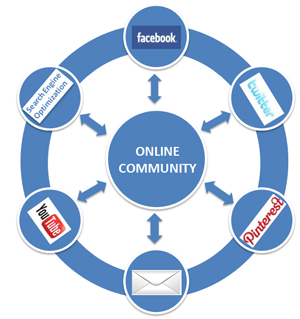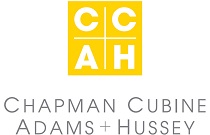
|
Using Online Communities to Empower Integrated Marketing
|
|
Posted by Guest Blogger at Jul 18, 2013 07:02 AM CDT
|
This article was written by guest author Michael Wilson. Michael is the CEO and Founder of Small World Labs, an online community platform provider focused on the nonprofit industry.
 As an integrated marketer, if you had access to a tool that: 1.) gave you more data about your constituents, 2.) increased their engagement level, 3.) led them to donate more, and 4.) helped them to become more involved in supporting your organization, would you be interested? That's a rhetorical question, because of course you would. However, only a small portion of nonprofit organizations are currently using online communities to achieve these results.
As an integrated marketer, if you had access to a tool that: 1.) gave you more data about your constituents, 2.) increased their engagement level, 3.) led them to donate more, and 4.) helped them to become more involved in supporting your organization, would you be interested? That's a rhetorical question, because of course you would. However, only a small portion of nonprofit organizations are currently using online communities to achieve these results.
What is an Online Community?
To set the stage, I'll clarify what I mean by the term "Online Community." An online community is an area that exists under your organization's web environment, either integrated into its main website, or as a separate microsite. In this regard, it is different from your organization's accounts on social media sites, which are located elsewhere.
An online community creates a central home for your online supporters to engage more deeply with your organization. It gives them the ability to connect with others, collaborate on a broad set of initiatives, share ideas and best practices, find and sign up for opportunities, and get involved with your organization online.
How Does an Online Community Empower Integrated Marketing?
An online community fills the integration gap between direct marketing mailings, email sends, and awareness generating posts on social media sites. When integrated with your existing signup process, users are immediately presented with options to share, collaborate, and contribute. The specific methods for sharing, collaborating, and contributing vary from organization to organization, but can include things like sharing event fundraising ideas, responding to recommended volunteer opportunities, and/or collaborating with their local affiliate.
In an earlier blog post, Stephen Ferrando wrote about the importance to "Study and use the data." A great aspect of online communities is their ability to track everything that is happening with a user. Whether a user has asked a particular question, joined a local group, responded to a topic discussion, or updated their profile information, all of this information is tracked. When integrated with your CRM (which we always recommend doing) all of this information helps provide you with current information and a broader 360-degree view of each person.
Has your organization been thinking about Big Data? Online communities can track over 100 different actions and updates for each member. All of this data is available for your teams to analyze, model, and segment to improve its programs and initiatives.
What are the Basic Tenets of Successful Online Communities?
I could go on and on in this area (and often do so), but here are some basics for creating a successful online community:
- Integrated – Integrate your online community with the rest of your online environment. Create a seamless user experience by utilizing single sign on (SSO) and parallel template styling. Tie into your existing CRM so all of the community data also pushes there next to everything else you are tracking.
- Targeted – Resist the urge to create one general space for everyone. Not all of your supporters are the same, nor do they want to interact with you in the same way. Communities that are targeted to volunteers, major donors, advocates, event participants, or other key segments tend to be more relevant and engaging to the user.
- Supported – Encourage staff to use the community as a primary vehicle to reach supporters. This is a basic, but often overlooked, concept that will lead to better engagement. Don’t create your community solely for your audience. Furthermore, look for opportunities to use your community to improve existing interactive workflows and make employees more productive.
 How Does an Online Community Drive Results?
How Does an Online Community Drive Results?
Online communities provide new opportunities for supporters to interact with your organization and with each other. At Small World Labs, we've found that this increased engagement leads directly to improved KPI outcomes for the organization. More specifically, we've found that a member of a nonprofit's online community tends to:
- Contribute 437% more dollars per year
- Upgrade paid membership levels 73% more often
- Volunteer 228% more hours
- Spend 300-900% more time on your website
- Share content to social networks 115% more often
At a time when nonprofits are often struggling to make ends meet, these results have a significant impact to their bottom line.
Where is your organization in the process of including online communities in its integrated marketing efforts? Let us know in the comments below.


















